Share
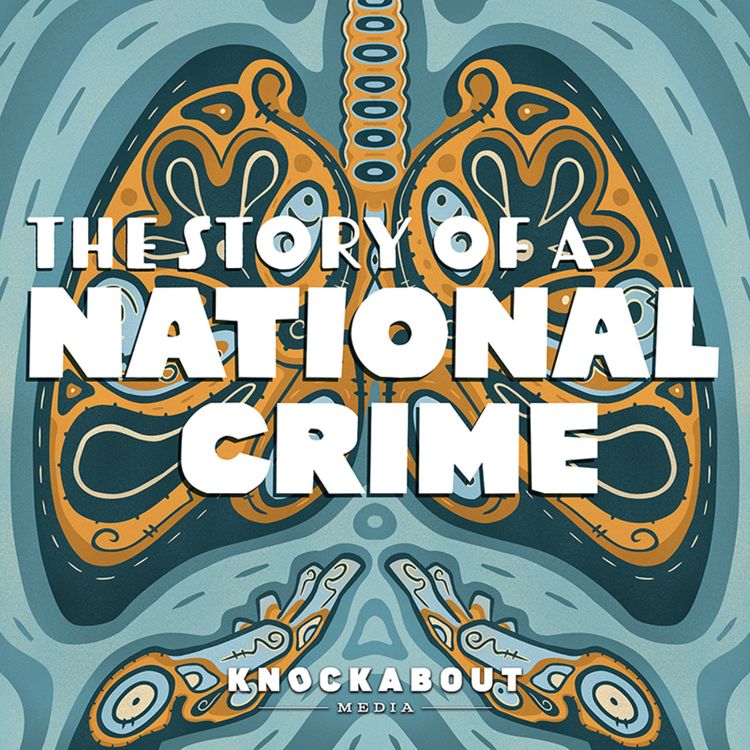
The Story of a National Crime
COMING SEPTEMBER 29
**THE STORY OF A NATIONAL CRIME** is coming September 29.
Peter Henderson Bryce was a medical doctor, civil servant and public health expert. In 1907, after surveying 35 residential schools, he submitted a report to the Department of Indian Affairs detailing clear connections between Residential Schools, tuberculosis and high student mortality rates. His recommendations fell on deaf ears and would not be revealed publicly until he was forced to retire. Fifteen years after his initial report, he published an 18-page “appeal for justice”—a pamphlet containing his findings and recommendations, and condemning the government’s lack of action to address illness and death in the Residential School System and First Nation communities. Indigenous peoples continued to experience disproportionate impacts of tuberculosis for years to come. Eventual federal intervention involved a confusing web of enforced medical care leaving Survivors and patients’ families to seek answers and closure.
The Story of a National Crime podcast comes from Knockabout Media, and is made possible by The Government of Canada.
For more information visit: www.nationalcrimepod.ca
More episodes
View all episodes
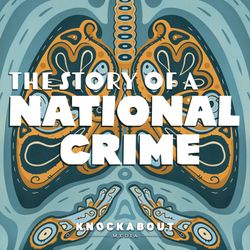
The Story of a National Crime - Trailer
01:09||Season 1Peter Henderson Bryce was a medical doctor, civil servant and public health expert. In 1907, after surveying 35 residential schools, he submitted a report to the Department of Indian Affairs detailing the connection between the residential school system, disease and the high rate of mortality among students. His calls to action fell on deaf ears. Bryce’s findings would remain suppressed until he left public service. Fifteen years after his initial report, he published an 18-page “appeal for justice”—a pamphlet detailing for the public everything he knew and everything the government knew about the health conditions in and as a result of Canada’s residential school system.This is The Story of a National Crime, new podcast from Knockabout Media, coming this fall.**DOWNLOAD OUR LISTENING GUIDE AND DISCUSSION QUESTIONS**This project has been made possible in part by the Government of Canada.Donate here to the Welcome Collective.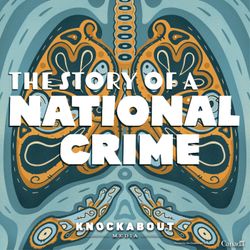
1. Sick People Need More Than Pills
29:37||Season 1, Ep. 1**DOWNLOAD OUR LISTENING GUIDE AND DISCUSSION QUESTIONS**2022 marks the 100th anniversary of the publication of The Story of a National Crime. It was written by Dr. Peter Henderson Bryce. It was an eighteen-page pamphlet containing evidence of neglect, negligence and harm to First Nations children and their communities. From 1904 to 1913, Bryce was the medical inspector for the Department of the Interior and Indian Affairs. It was not the first time he had spoken out. This pamphlet was his appeal for justice and his condemnation of federal inaction. In this series, we look at the practices, policies, and official correspondence to reveal the intentional actions and acts of indifference that contributed to poor health and lethal outcomes. There will be examples of people who pushed back - the whistleblowers - the parents, the Indigenous communities, the bureaucrats, and members of the clergy. The experts interviewed highlight how archival documents only reveal part of the history and that numerous questions remain.Content Warning: This series talks about Indian Residential Schools, medical racism, segregated health care, and missing patients.If you are a Residential School Survivor or Intergenerational Survivor, you can access support through the National Indian Residential School Crisis Line at 1-866-925-4419. Mental health and crisis support is also available through Hope 4 Wellness at 1-855-242-3310.Credits:Written/Produced by Maia-Foster SanchezCo-Producer: Ryan BarnettAdditional Voices: Gabriel MaracleOur series advisors are Teresa Edwards, Kaila Johnston, and Erin Millions.Artwork by Caleb Ellison-DysartA Knockabout Media Production | Funded by the Government of CanadaDonate here to the Welcome Collective.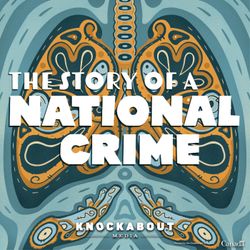
2. "A Condition Disgraceful to the Country"
31:45||Season 1, Ep. 2**DOWNLOAD OUR LISTENING GUIDE AND DISCUSSION QUESTIONS**He became the Chief Medical Health Officer of Ontario. He wrote the very first Health Code in Ontario. He was president of the American Public Health Association. He was a North American expert on public health. Dr. Peter Henderson Bryce wanted to become Canada's first public health officer. When an opening came up at Indian Affairs, he decided it would be a good stepping stone.In this series, we look at the practices, policies, and official correspondence to reveal the intentional actions and acts of indifference that contributed to poor health and lethal outcomes. There will be examples of people who pushed back - the whistleblowers - the parents, the Indigenous communities, the bureaucrats, and members of the clergy. The experts interviewed highlight how archival documents only reveal part of the history and that numerous questions remain.Content Warning: This series talks about Indian Residential Schools, medical racism, segregated health care, and missing patients.If you are a Residential School Survivor or Intergenerational Survivor, you can access support through the National Indian Residential School Crisis Line at 1-866-925-4419. Mental health and crisis support is also available through Hope 4 Wellness at 1-855-242-3310.Credits:Written/Produced by Maia-Foster SanchezCo-Producer: Ryan BarnettAdditional Voices: Gabriel MaracleOur series advisors are Teresa Edwards, Kaila Johnston, and Erin Millions.Artwork by Caleb Ellison-DysartA Knockabout Media Production | Funded by the Government of CanadaDonate here to the Welcome Collective.
3. “This Criminal Disregard for the Treaty Pledges”
36:33||Season 1, Ep. 3**DOWNLOAD OUR LISTENING GUIDE AND DISCUSSION QUESTIONS**In this episode, we examine governments' continued lack of action and accountability, Bryce’s The Story of a National Crime, medical experimentation, and another type of experiment: the preventorium.In this series, we look at the practices, policies, and official correspondence to reveal the intentional actions and acts of indifference that contributed to poor health and lethal outcomes. There will be examples of people who pushed back - the whistleblowers - the parents, the Indigenous communities, the bureaucrats, and members of the clergy. The experts interviewed highlight how archival documents only reveal part of the history and that numerous questions remain.Content Warning: This series talks about Indian Residential Schools, medical racism, segregated health care, and missing patients.If you are a Residential School Survivor or Intergenerational Survivor, you can access support through the National Indian Residential School Crisis Line at 1-866-925-4419. Mental health and crisis support is also available through Hope 4 Wellness at 1-855-242-3310.Credits:Written/Produced by Maia-Foster SanchezCo-Producer: Ryan BarnettAdditional Voices: Gabriel MaracleOur series advisors are Teresa Edwards, Kaila Johnston, and Erin Millions.Artwork by Caleb Ellison-DysartA Knockabout Media Production | Funded by the Government of CanadaDonate here to the Welcome Collective.
4. “So, I Lie On In Bed Till I Feel I Shall Burst”
45:47||Season 1, Ep. 4**DOWNLOAD OUR LISTENING GUIDE AND DISCUSSION QUESTIONS**In this episode, we focus on patients’ lived experiences in Manitoba and Alberta in provincial sanatoria and what were called “Indian hospitals.” There were almost 30 Indian hospitals across Canada – 15 in the Prairie Provinces alone.In this series, we look at the practices, policies, and official correspondence to reveal the intentional actions and acts of indifference that contributed to poor health and lethal outcomes. There will be examples of people who pushed back - the whistleblowers - the parents, the Indigenous communities, the bureaucrats, and members of the clergy. The experts interviewed highlight how archival documents only reveal part of the history and that numerous questions remain.Content Warning: This series talks about Indian Residential Schools, medical racism, segregated health care, and missing patients.If you are a Residential School Survivor or Intergenerational Survivor, you can access support through the National Indian Residential School Crisis Line at 1-866-925-4419. Mental health and crisis support is also available through Hope 4 Wellness at 1-855-242-3310.Credits:Written/Produced by Maia-Foster SanchezCo-Producer: Ryan BarnettAdditional Voices: Gabriel MaracleOur series advisors are Teresa Edwards, Kaila Johnston, and Erin Millions.Artwork by Caleb Ellison-DysartA Knockabout Media Production | Funded by the Government of CanadaDonate here to the Welcome Collective.
5. The Right to Know
42:25||Season 1, Ep. 5**DOWNLOAD OUR LISTENING GUIDE AND DISCUSSION QUESTIONS**In this final episode, we talk to people and organizations helping Survivors and families find out what happened in sanatoria and segregated hospitals in Manitoba, Saskatchewan, and Alberta. They describe barriers to accessing records and how knowing what happened and sharing experiences contribute to Survivors’ healing. We also look at the on-going inadequacies in health care for Indigenous Peoples in Canada.Content Warning: This series talks about Indian Residential Schools, medical racism, segregated health care, and missing patients.If you are a Residential School Survivor or Intergenerational Survivor, you can access support through the National Indian Residential School Crisis Line at 1-866-925-4419. Mental health and crisis support is also available through Hope 4 Wellness at 1-855-242-3310.Credits:Written/Produced by Maia-Foster SanchezCo-Producer: Ryan BarnettAdditional Voices: Gabriel MaracleOur series advisors are Teresa Edwards, Kaila Johnston, and Erin Millions.Artwork by Caleb Ellison-DysartA Knockabout Media Production | Funded by the Government of CanadaDonate here to the Welcome Collective.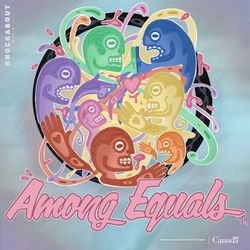
COMING SOON: AMONG EQUALS
01:16||Season 2*COMING SOON* a new five-part series.Fifty years ago the Professional Native Indian Artists Incorporation (PNIAI) transformed the art world forever. As part of Indigenous activism happening across the Americas in the 1970s, the “Indian Group of 7” (as they were dubbed by the press at the time) asserted First Nations artistic expressions and self-determination in the face of forced assimilation policies. Their goals: encourage other First Nations artists to paint, create space in national and commercial galleries for First Nations art, and inspire youth. From Expo 67 to their groundbreaking exhibition at the Winnipeg Art Gallery and beyond, learn more about the lives and artistic practices of the PNIAI and its members, and the Group's on-going influence, today.Hosted by Soleil LaunièreProduced by Ryan Barnett, Maia-Foster Sanchez and Nahka BertrandArtwork by Caleb Ellison-DysartA Knockabout Media Production | Funded by the Government of Canada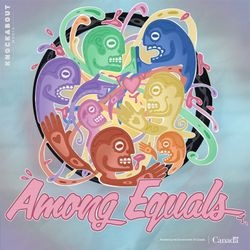
1. Introducing: Among Equals | A New Way of Seeing
30:57||Season 2, Ep. 1Norval Morrisseau explodes onto the Canadian art scene with his inaugural exhibit at Toronto's Pollock Gallery. Daphne Odjig nurtures her gift as a precocious visual artists, and struggles with her identity as an Indigenous woman in 1930s Parry Sound.Download the listening guide.Hosted by Soleil LaunièreProduced by Ryan Barnett, Maia Foster-Sanchez and Nahka BertrandArtwork by Caleb Ellison-DysartTheme by Justin DelormeThis series features interviews with Bonnie Devine, Greg A. Hill, Michelle Lavallee, Carmen Robertson, Pauline Beardy, Philip Gevik, Corey Dingle, Donna Feledichuk and Joseph M. Sanchez.A Knockabout Media Production | Funded by the Government of CanadaDonate here to the Welcome Collective.